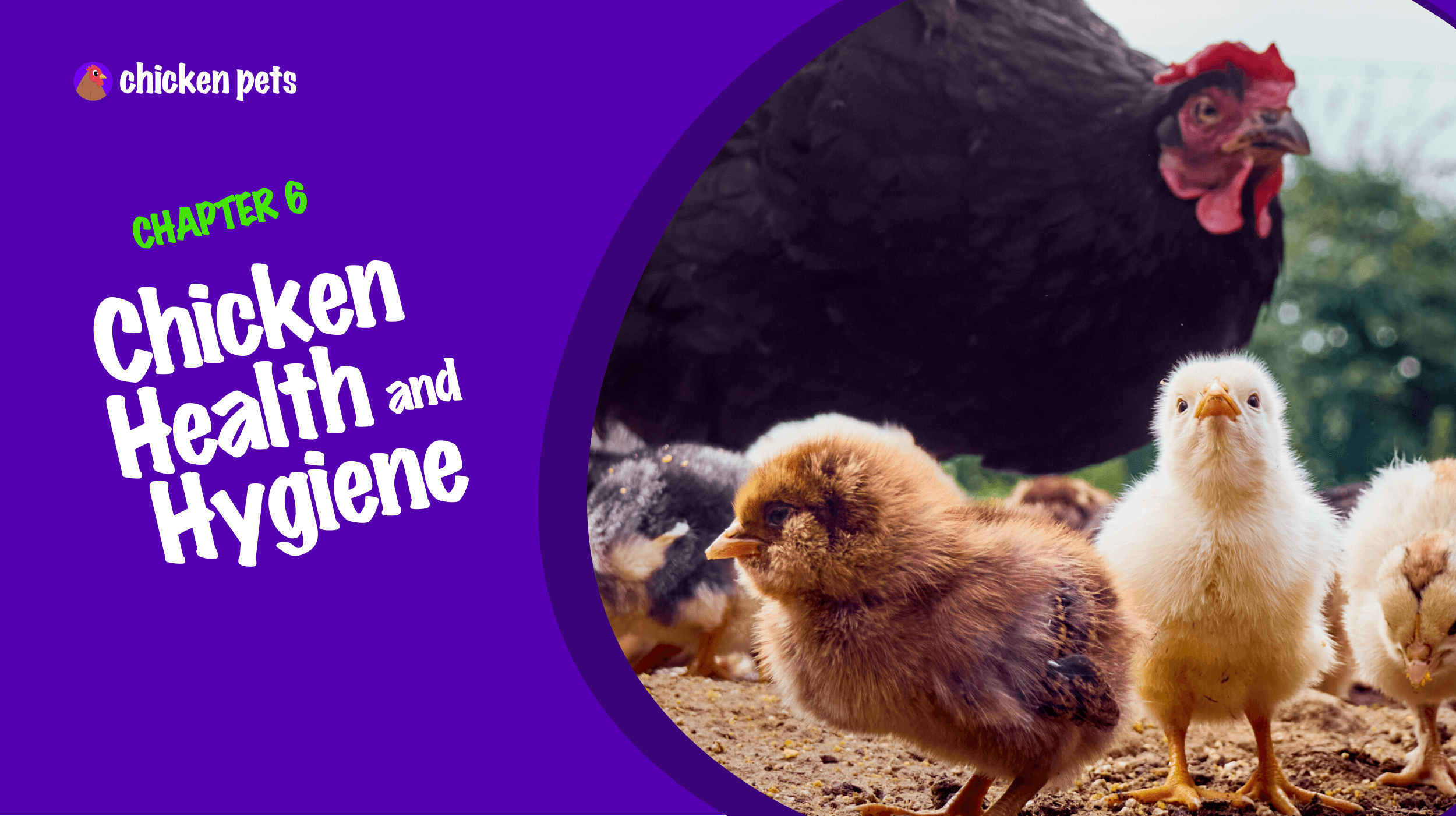Raising backyard chickens is about much more than feeding and collecting eggs – it’s also about ensuring their overall health and well-being. This chapter covers everything from the basics of human health and safety when handling chickens to identifying the signs of a healthy and unhealthy bird. We’ll discuss common chicken health issues, how to prevent them, and what to do if a chicken falls ill. While we’ll touch on all aspects of chicken care, we’ll strive to keep things light and humorous throughout. After all, laughter is the best medicine, even for our feathered friends!
Human Health: Protect Yourself and Your Flock – A Cluckin’ Good Guide
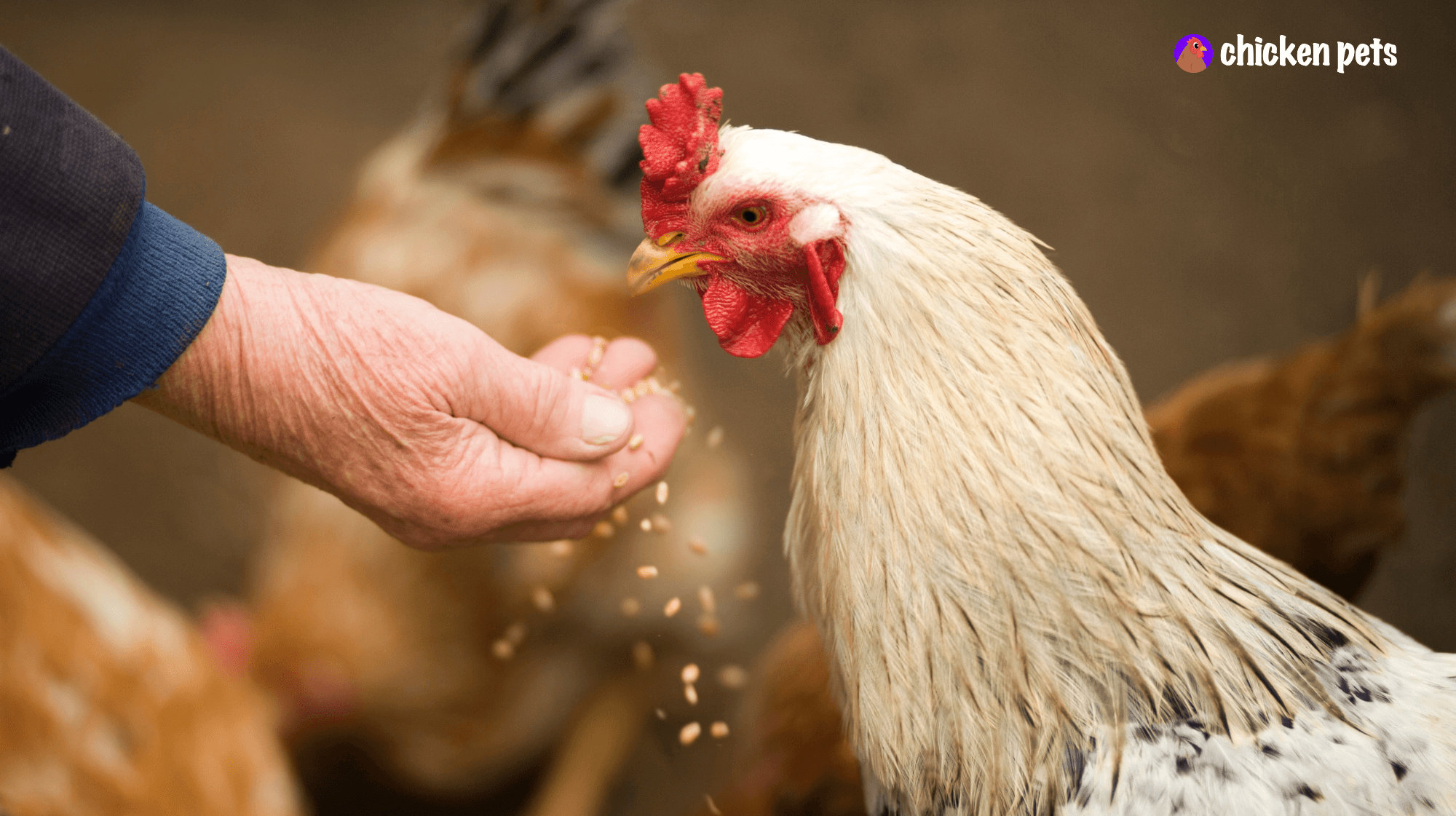
Raising backyard chickens is a fun and rewarding experience. Still, taking care of your feathered friends and yourself is essential. The following tips will help you keep cluckin’ safe while handling your chickens and cleaning their coop.
Hand Washing: A Cluckin’ Good Habit
Hand washing is a must when it comes to keeping germs at bay. So, wash your hands thoroughly with soap and water before and after handling your chickens. And remember, when it comes to chicken germs, it’s always best to sing “Mary Had a Little Lamb” twice while washing your hands.
Glove it Up: Protective Clothing for Handling Chickens
When handling your chickens, it’s a good idea to protect yourself with gloves and a mask. Just remember, with COVID happening, some people will love to wear these masks as they’ll get a sense of nostalgia, and others will not. While it’s recommended, it’s not a must. But one thing’s for sure. While handling those backyard birds, you’ll look like a feathered friend’s favorite superhero.
Mind Your Manners: No Face Touching Allowed
After handling your chickens, resist the urge to touch your face, especially your mouth, nose, and eyes. We know it’s tough to resist those irresistible chicken cuddles, but it’s best to keep your hands away from your face to avoid spreading germs.
Eats and Treats: No Food Allowed
When handling your chickens or cleaning their coop, avoid eating or smoking. It’s best to keep your food and smoke away from your chickens to prevent the spread of disease. And who wants to smell like smoke when snuggling with your chickens anyway?
Separate and Conquer: Prevent the Spread of Disease
Finally, make sure to avoid the transfer of equipment, feed, or water containers between different chicken flocks. This will help prevent the spread of disease and keep all your flocks healthy and happy.
Following these tips will keep you and your chickens cluckin’ happy and healthy. So, go ahead and enjoy raising your backyard chickens!
“Keep it Clean” – Keeping Your Coop Spotless for Your Happy Hens
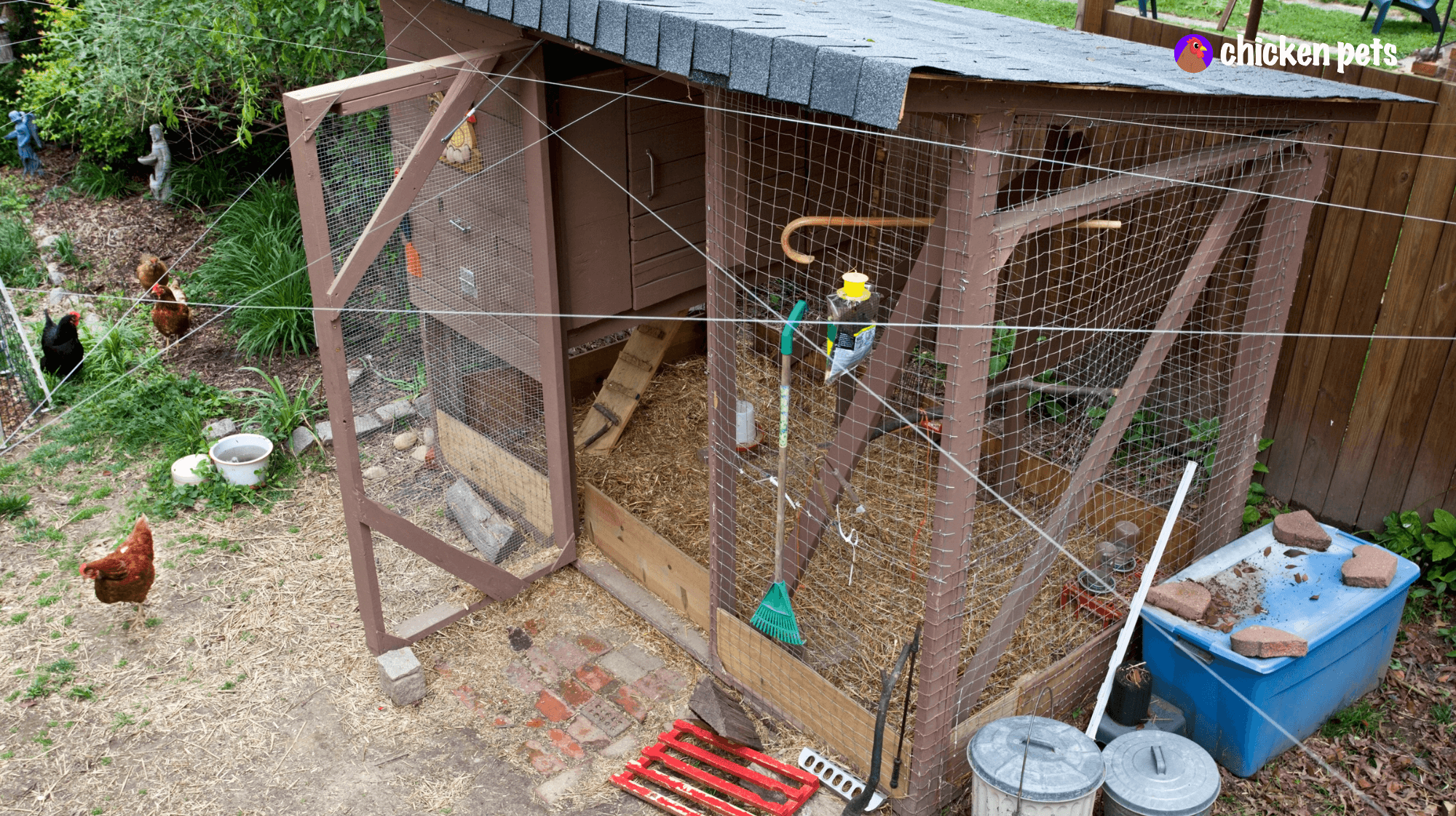
Keeping their living quarters clean is critical to maintaining their health and well-being. Here are some tips for keeping your coop and run fresh and hygienic.
Regular Maintenance: A Weekly Routine for a Clean Coop
A weekly clean of your coop and run should be a non-negotiable part of your routine. This involves removing any accumulated manure, feathers, and old bedding. Fresh bedding is a must, so replace the old material with new, such as straw or wood chips, to keep the environment clean and dry. Old food and water containers can harbor bacteria, so it’s best to replace them with clean ones regularly.
Diatomaceous Earth and Herbs: Natural Pest Control with a Pinch of Scent
Diatomaceous earth is a natural powder that helps control pests and parasites such as mites and lice and is environmentally friendly. Adding some herbs to the mix can also be a great way to repel pests and parasites while infusing a lovely scent into the coop. Lavender, rosemary, and peppermint are all great options.
Deep Cleaning: A Yearly Scrub-Down for Your Coop and Run
A yearly deep clean of your coop and run is recommended to remove any built-up grime and disease-causing bacteria. You’ll want to empty the coop, run, and thoroughly scrub during a deep clean. After a deep clean, add fresh bedding and nesting material for your happy hens to snuggle into.
By following these tips for regular maintenance, using natural pest control methods, and performing a yearly deep clean, you’ll be well on your way to a clean and healthy coop for your feathered friends.
Disease Prevention: Protect Your Flock from Feather-Ruffling Outbreaks
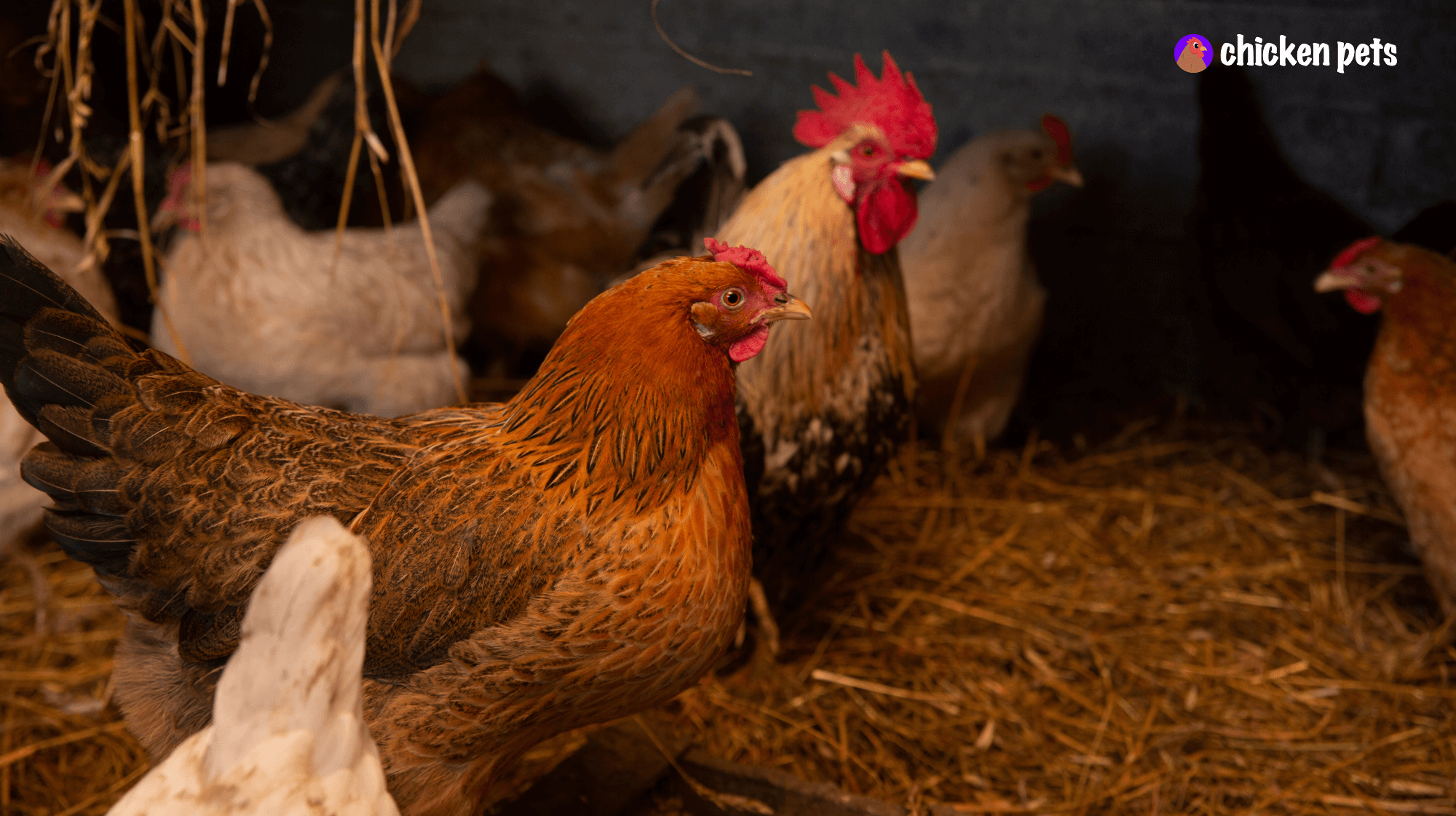
As a responsible chicken keeper, keeping your feathered friends healthy and disease-free is a top priority. This section will cover the various measures to prevent the disease from spreading to your flock.
Setting Up a Germ-Free Fortress: Perimeter Control
A good defense starts with a strong perimeter; the same goes for your coop and run. Setting up a barrier, such as a fence, can help prevent wild animals and other chickens from bringing in diseases. Also, keep the area around the coop and run free of weeds, which can harbor disease-causing bacteria.
Restrict the Flock-Flu: Traffic Control
Just like the human flu, diseases can spread quickly among chickens. To prevent this, limiting the number of visitors to your coop and run is essential, especially for those with other chickens. And for those who visit, clean their shoes and wash their hands before entering the coop and run.
Sanitize, Sanitize, Sanitize: The Key to a Clean Coop
Regular cleaning and sanitizing are crucial in preventing the buildup of disease-causing bacteria. Make sure to clean and sanitize equipment, feeders, and water containers regularly. If a chicken does become sick, disinfect the entire coop and run to prevent the spread of disease to other chickens.
New Chicks on the Block: Biosecurity in Practice
Introducing new chickens to the flock can be exciting, but it also brings a risk of disease. To minimize this risk, implement strict biosecurity measures, such as quarantine and testing for the disease. And remember to monitor your chickens regularly for signs of illness and seek veterinary care promptly if necessary.
How to Spot a Happy and Healthy Hen
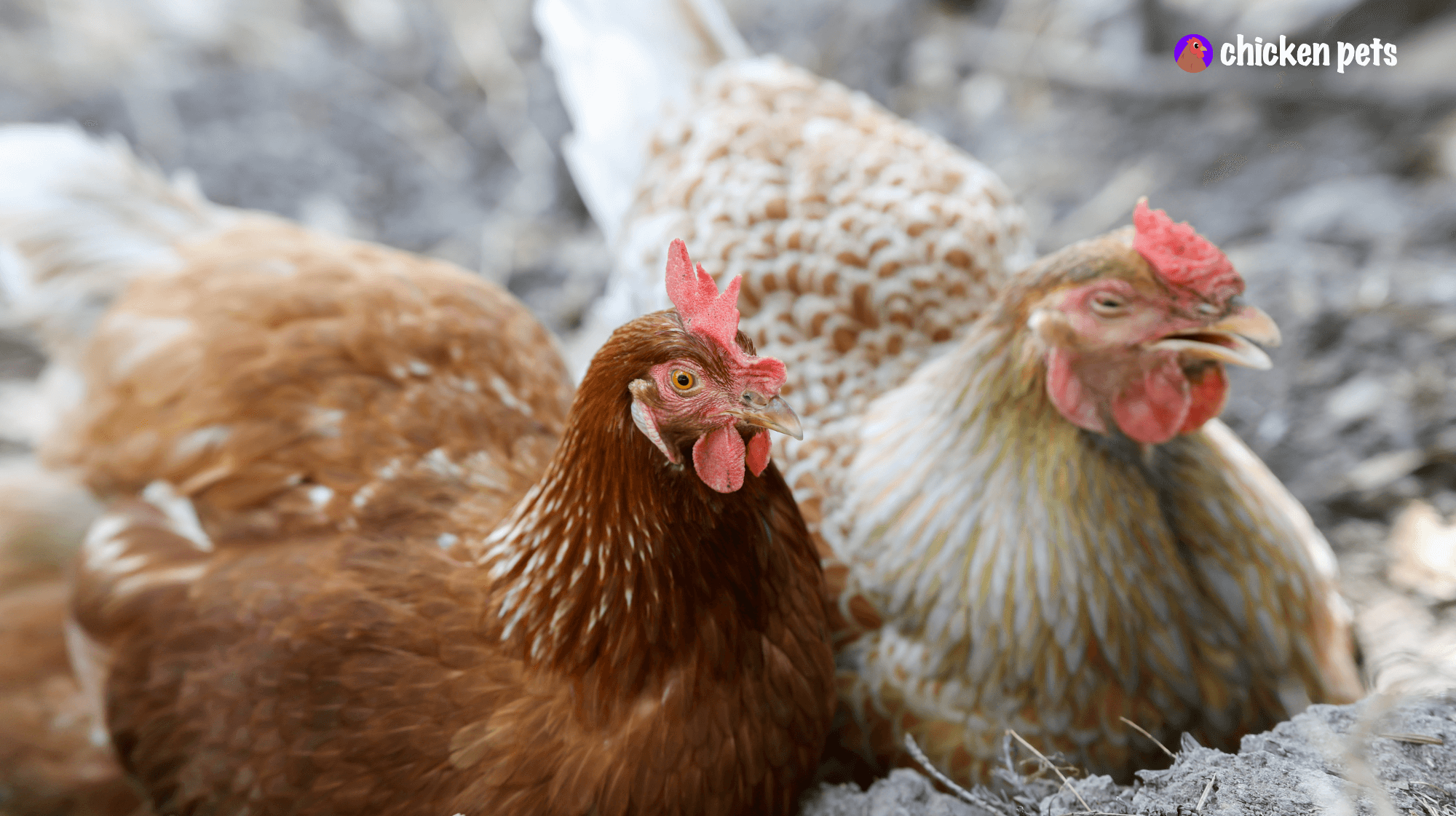
You love your backyard chickens, and keeping a close eye on their health and well-being is essential. After all, a happy and healthy chicken is productive, and nobody wants an unproductive chicken. Here are some key signs to look for to make sure your hens are clucking with joy.
Bright and Shining: The Hen’s Windows to the Soul
A most telling sign of a healthy chicken is bright and clear eyes. This means they’re feeling good, both physically and mentally. A dull or cloudy eye can indicate illness, so keep an eye on this area. Also, take a look at the feathers. Are they shiny and smooth? This is an excellent indicator of good health and a well-balanced diet.
Stayin’ Strong: The Hen’s Posture and Activity Level
Another critical sign of a healthy chicken is good posture and activity level. A healthy chicken will stand tall, proud, active, and curious about their surroundings. Notice your chickens are sluggish or lethargic. It may indicate an underlying health issue; you should consult a veterinarian.
Foodie Frenzy: The Hen’s Healthy Appetite and Weight
A healthy chicken will have a good appetite and a healthy weight. Chickens are naturally curious creatures who love to peck at their food. If your hens aren’t eating as much as they usually do, it could be a sign of a health problem. Additionally, monitoring their weight regularly is essential, as sudden changes can indicate a health issue.
Egg-cellent Eggs: The Hen’s Regular Production
Regular egg production is another key sign of a healthy chicken. Chickens are known for their egg-cellent egg production, and if your hens are laying regularly, it’s a good sign that they’re feeling good. Notice a decrease in egg production. It may indicate an underlying health issue; you should consult a veterinarian.
Sneeze-Free Zone: No Signs of Coughing, Sneezing, or Nasal Discharge
Chickens, like humans, can get sick. One of the first signs of illness in chickens is coughing, sneezing, or nasal discharge. If you notice any of these signs, isolating the sick chicken and seeking veterinary care promptly is crucial.
Bump-Free: No Signs of Abnormal Swelling or Lumps
Finally, it’s essential to watch for abnormal swelling or lumps. This can indicate a variety of health issues, from infection to tumors. If you notice any unusual bumps or swelling, it’s essential to seek veterinary care promptly.
Signs of Unhappiness: A Guide to Spotting a Sick Chicken
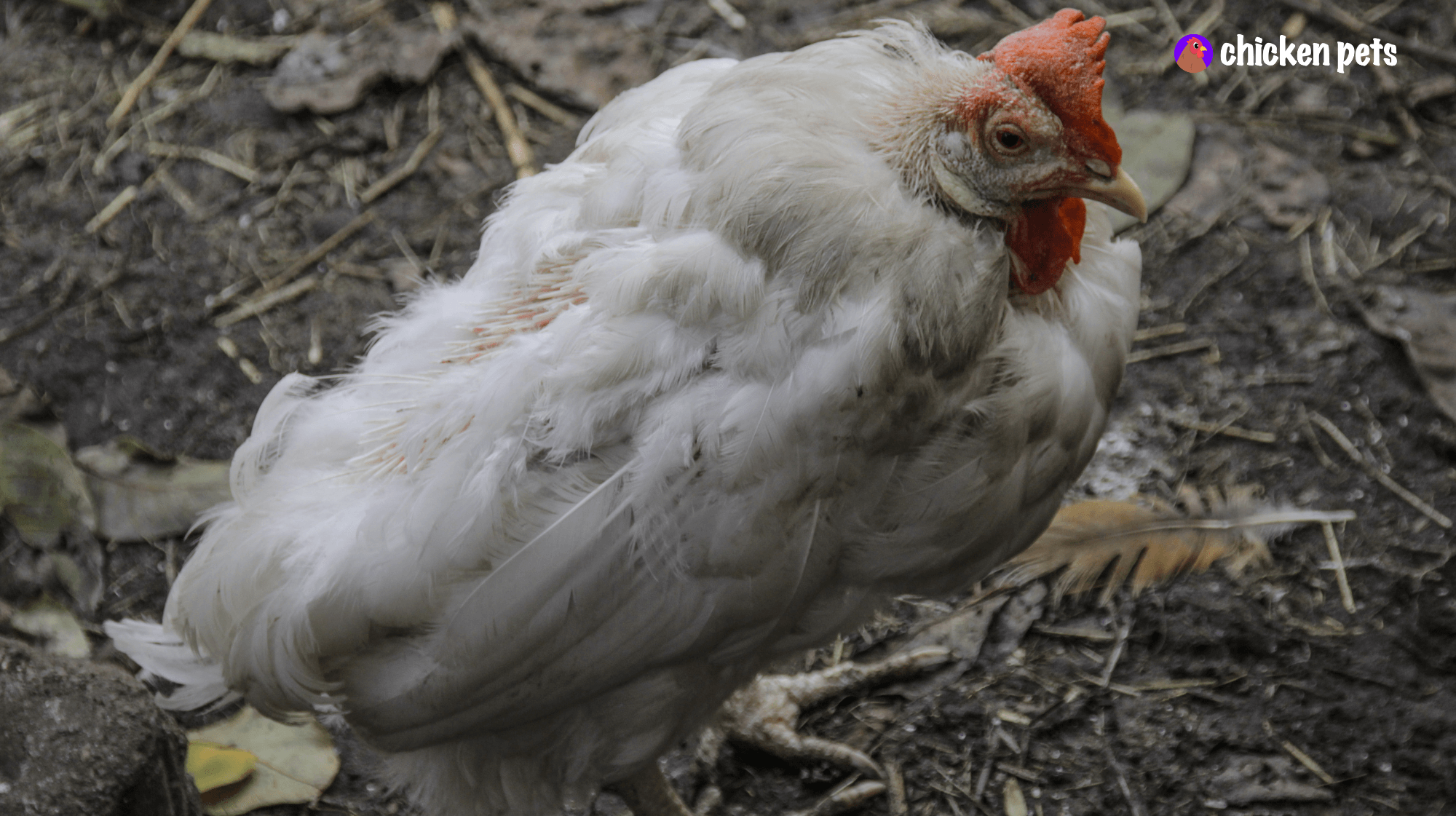
We must watch our feathered friends to ensure they are happy and healthy. Here are some common signs that your chicken may not be feeling its best:
Dull and Drab: The State of a Sick Chicken’s Eyes
Are your chicken’s eyes usually bright and clear, but now they look dull and cloudy? This could be a sign of an illness or infection. Keep a close eye on your chicken and seek veterinary care if necessary.
Ruffled Feathers: A Sure Sign of Unhappiness
Chickens with ruffled feathers may try to conserve body heat, indicating they feel cold or sick. Smooth and shiny feathers are a good sign that your chicken is healthy, so if you notice your chicken’s feathers are looking rough, it may be time to take action.
Lazy Birds: A Sign of Something Not Quite Right
Chickens are naturally active creatures, so if your chicken is acting lethargic or not as active as usual, it could be a sign of illness. A healthy chicken should be on the move, pecking and foraging for food.
Weight Loss: A Danger Sign for Chickens
A decreased appetite or weight loss can indicate your chicken is not feeling well. Keep an eye on your chicken’s food intake and weight to ensure it maintains a healthy diet.
Egg-cellent or Eggstraordinary? Abnormal Egg Production
Regular egg production is a good indicator of a healthy chicken. If you notice your chicken is producing fewer eggs, or if the eggs look abnormal, it may be a sign of illness.
Sneeze, Cough, Chirp: Respiratory Symptoms in Chickens
Just like people, chickens can catch colds too! Notice your chicken is sneezing, coughing, or has a nasal discharge. It may be a sign of a respiratory infection. Keep an eye on your chicken and seek veterinary care if necessary.
Swollen and Strange: Abnormal Swellings and Lumps
Suppose you notice any unusual swelling or lumps on your chicken. In that case, seeking veterinary care as soon as possible is essential. These symptoms could indicate various health problems, from infections to tumors.
Regular Health Checkups: Keeping Your Feathered Friends Fit and Fine
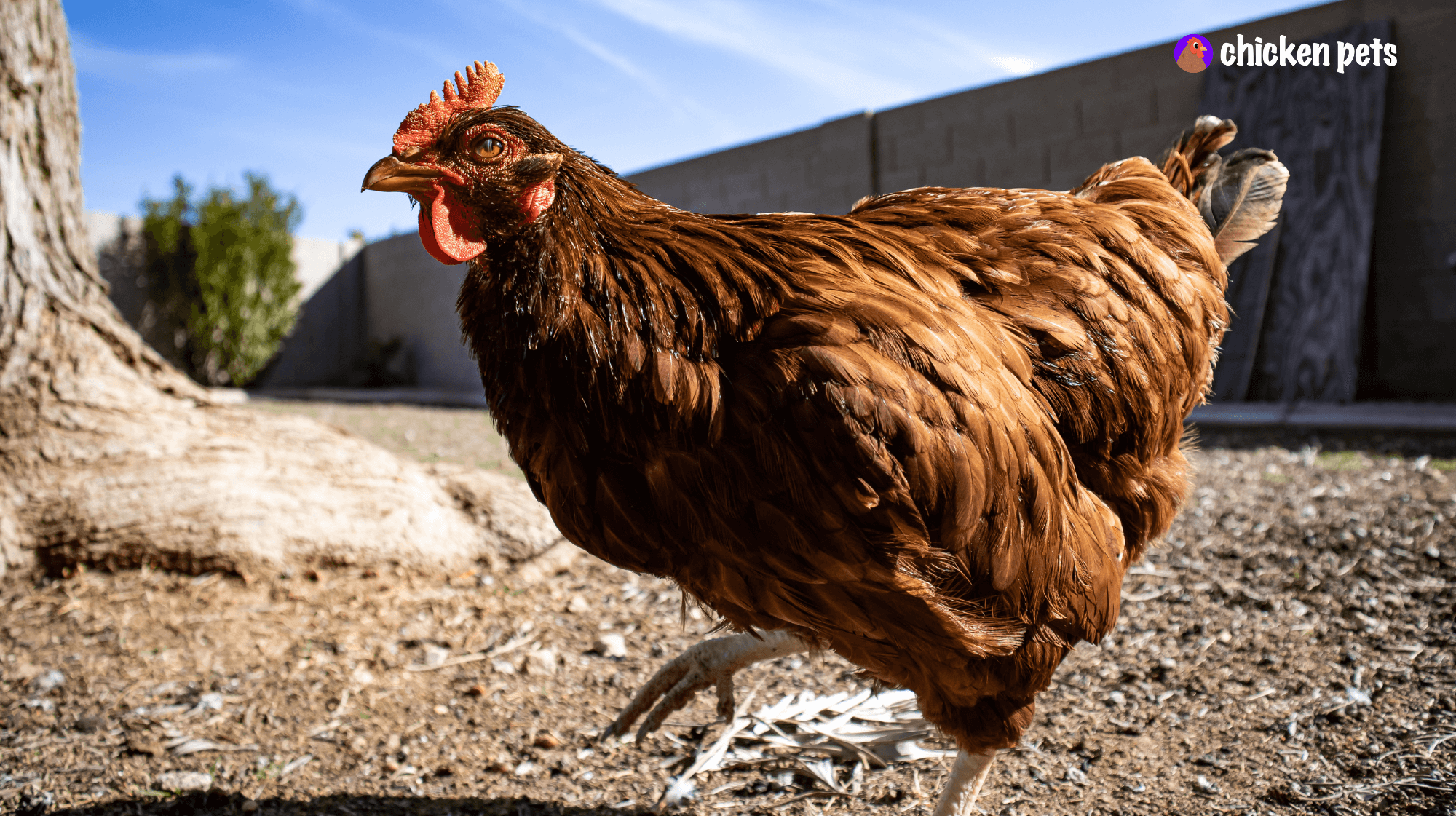
Ensuring that your feathered friends are healthy and happy is crucial. Regular health checkups and preventive care play a significant role in keeping your chickens in tip-top shape. Here’s what you need to know to keep your chickens clucking with joy!
Checking for Signs of Illness or Distress: A Chicken’s Health is in Your Hands
Just like humans, chickens can get sick too! It’s essential to regularly monitor your chickens for any signs of illness or distress, such as coughing, sneezing, or lethargy. If you notice any concerning symptoms, don’t wait! Seek veterinary care promptly to get your chickens back on the road to recovery.
Vaccinations and Parasite Control: Protect Your Chickens From Head to Toe
Vaccinations and parasite control are critical components of preventive care for chickens. Consult a veterinarian to determine which vaccinations are necessary for your chickens based on age, breed, and geographical location. Implementing a parasite control program, such as regular deworming and lice control, will prevent parasites from affecting the health of your chickens.
Clean Coop, Healthy Chickens: Maintaining a Germ-Free Environment
A clean and sanitized coop and run are crucial for maintaining the health of your chickens. Regular cleaning and sanitizing will prevent the buildup of disease-causing bacteria. Fresh bedding and good ventilation will reduce the risk of respiratory infections and keep your chickens breathing easily.
Sick Bird? No Problem! Here’s How to Isolate Them Safely
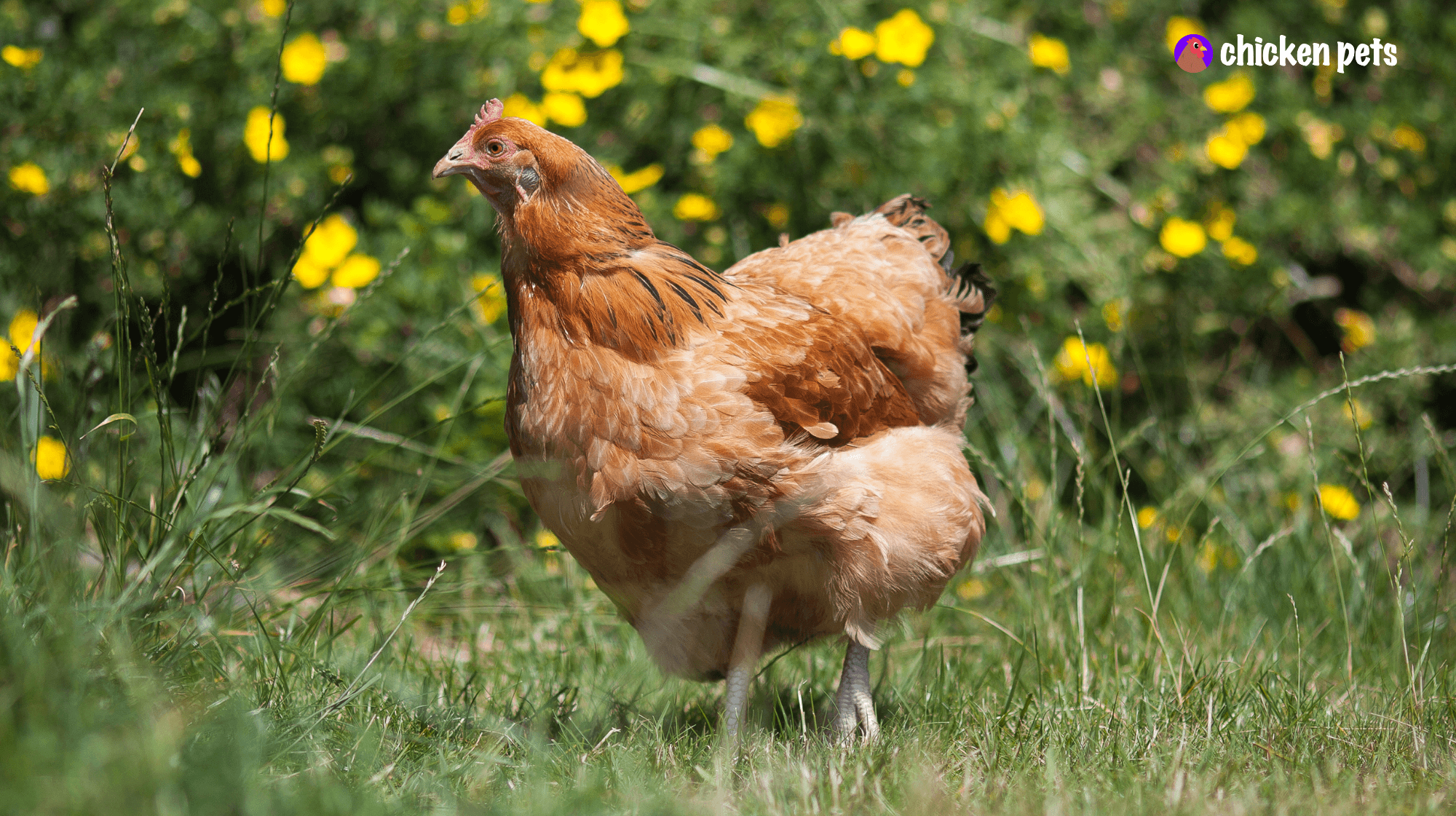
Dealing with a sick chicken isn’t fun, but it’s essential to keep them separated from the rest of the flock to prevent the spread of disease. Here are some tips on how to do it right!
Building the Perfect Quarantine Pad
Having an isolation pen is a must-have for any chicken owner. It’s essential to keep the sick chicken separated from the rest of the flock to prevent the spread of disease. It’s easy to build one yourself or purchase a pre-made pen. Keep it separate from the main coop and run, and avoid cross-traffic between healthy and sick chickens.
Ready for Anything: Assemble Your Chicken First Aid Kit
It’s always good to be prepared. Assemble a first aid kit for your chickens, including antiseptic ointment, gauze, scissors, and a thermometer. Gloves protect you from potential exposure to germs and bacteria. A clean cloth to gently clean any wounds or injuries. An electrolyte solution to help replenish fluids and minerals in a dehydrated chicken. A small flashlight to help you see any injuries or wounds in hard-to-reach areas. A nasal aspirator to help clear any blockages in a chicken’s nasal passages. A syringe for administering oral medications or for giving fluids. A soft, flexible brush to help remove any matted feathers or debris from a chicken’s skin and to stimulate blood flow. A durable carrier to transport sick or injured chickens to the veterinarian.
Stay Safe and Healthy with Biosecurity Measures
Handling a sick chicken can be a delicate task. Still, it’s essential to maintain biosecurity measures to protect the sick chicken and the rest of the flock. Wear protective clothing, such as gloves and a mask, when handling the sick chicken. Wash your hands thoroughly before and after handling the sick chicken. Keep the isolation pen and equipment for the ill chicken separate from the main coop and run. Sanitize everything regularly to prevent the spread of disease.
Oh No! Common Chicken Health Problems and How to Prevent Them
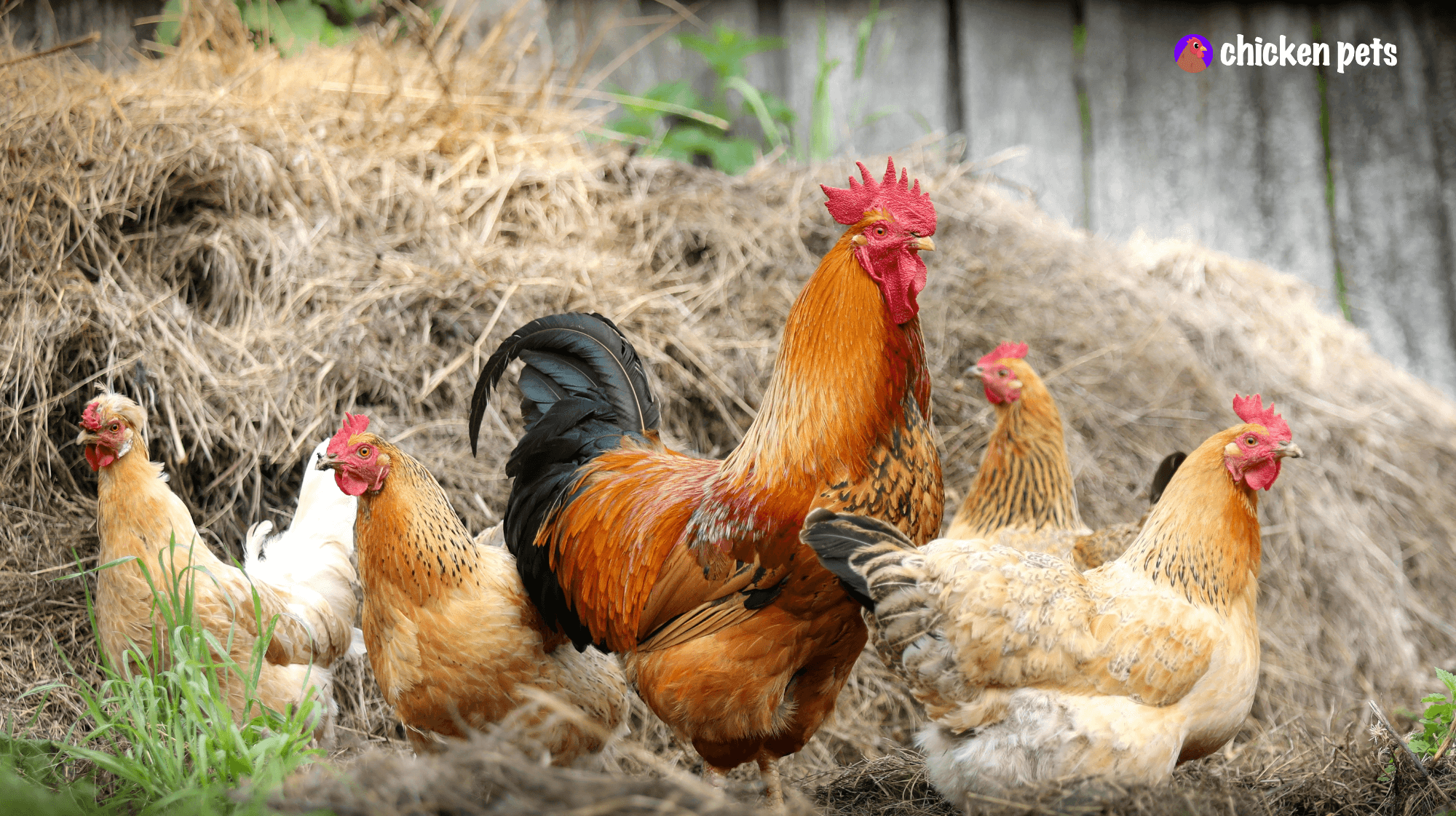
Chickens are generally hardy creatures but are not immune to health problems. Whether parasites and pests that want to take up residence on their feathers, injuries, infections that cause pain, or illnesses that can impact their overall health, chickens need our help to stay in tip-top shape. Let’s look at the most common chicken health problems and what you can do to help prevent them.
Parasites and Pests: Bugs Be Gone!
Parasites and pests can be a real headache for chickens, literally. Lice, mites, and ticks can make life miserable for your birds, causing itching and irritation that can lead to infection and other health problems. To keep these pesky critters at bay, consider using dust baths, which can help remove insects and parasites from your chickens’ feathers. Regular cleaning and sanitizing of the coop and run can also help prevent parasites from residence. If you notice any parasites or pests, immediately stop them from spreading to other birds or causing more severe health problems.
Mites and Fleas.
To identify if a chicken has mites or fleas, look for symptoms such as restlessness, stress, and increased scratching and pecking at the skin. You can part the feathers and look for small, dark dots, which could be droppings. Mites and fleas are small, reddish-brown insects that are difficult to see with the naked eye. There are likely tons more if you find a few of these bugs.
The most common type of mite that chickens get is the red mite, a blood-sucking parasite that comes out at night to feed on the chicken’s blood. This can cause anemia, decreased egg production, and general weakness in the chicken. Northern fowl mites can live on the chicken and feed on its blood during the day. Scaly leg mites burrow under the chicken’s scales and cause a raised, scaly appearance to the legs.
Several treatments are available to eliminate fleas and mites, including insecticides such as permethrin, pyrethrin, and ivermectin. Follow the instructions carefully. Over-exposure can be dangerous. Treat the coop and surrounding area with insecticide. Clean and disinfect the coop regularly to prevent infestations.
In addition to chemical treatments, natural remedies can help to get rid of these critters. Gently rub cooled wood ash directly on the chicken’s skin and add it to their dust bath areas. Sprinkle diatomaceous earth in the coop and on the chickens. Amy Fewell at iamcountryside.com recommends the following, which has also worked for me.
“In a spray bottle, mix crushed garlic, peppermint, cinnamon bark, lavender, and eucalyptus. Add a few tablespoons of vinegar or witch hazel and top off with water. Shake it up, good. Then, spray directly on the chicken’s neck, vent, tail, and feet for two weeks. Also, spray their roosting bars.”
Keeping the coop clean and dry is vital, as fleas and mites thrive in moist, dirty environments.
Ticks
Ticks are tiny, blood-sucking parasites that can attach themselves to chickens and cause health problems. They are easily identifiable by their dark, oval-shaped bodies and long, thin legs. If a backyard chicken has ticks, they can be found near the head, neck, and ears and around the feathers and skin folds. Chickens can usually rid themselves of ticks—they’ll even eat them!—but it’s good to check for them.
To check for ticks, you should thoroughly inspect your chicken’s feathers and skin, paying close attention to the areas mentioned earlier. If you find a tick, it will look like a small, dark spot attached to the chicken’s skin. Ticks can also be removed by gently pulling them away from the skin with tweezers.
Once you have identified a tick on your chicken, treating it immediately is essential to prevent further health problems. Several products available can effectively kill and remove ticks from chickens, including permethrin topical sprays, spot-on treatments, and powder. You can find these on Amazon or your local feed store. Follow the instructions on the product carefully, as over-treating your chicken can cause harm. And for any chemical you spray on your chickens, know that traces will be in their eggs. It’s a good idea to stop eating eggs for a week or two to let the chemicals subside. Diatomaceous earth is another option that works well that doesn’t require egg withdrawal.
Worms
Backyard chickens can get several worms, including roundworms, tapeworms, and gapeworms. These parasites can cause health problems for chickens and be passed on to humans.
To identify if a chicken has worms, look for symptoms like decreased appetite, weight loss, and diarrhea. Examine the chicken’s droppings for any signs of worms, as they will appear as small, white, or pale yellow, spaghetti-like parasites.
Use over-the-counter worming products, oral medication, or topical treatments to eliminate worms. Follow the product instructions and repeat the treatment to eliminate all the worms. Yuk.
Injuries, Infections, and Wounds: Fix Me Up, Doc!
Chickens are notorious for getting into mischief, and their clumsiness can sometimes lead to injuries, infections, and wounds. The most common injuries include broken bones, bumblefoot, and eye infections. To prevent these damages, ensure the coop and run are safe and secure, with no sharp edges or other hazards that could cause injury. If you notice an injury, seek veterinary care promptly to ensure proper treatment and a speedy recovery.
Common Illnesses: Feeling under the Weather?
Chickens can also be affected by various illnesses, such as Marek’s disease, Fowl Pox, Mycoplasma Gallisepticum (MG), egg binding, Infectious Coryza, and other common diseases. To prevent these illnesses, keep your birds healthy through regular health checkups, vaccinations, and parasite control. If you notice any symptoms, seek veterinary care promptly to ensure proper treatment and prevent the disease from spreading.
By watching your birds, taking preventive measures, and seeking veterinary care promptly when necessary, you can help keep your chickens healthy and happy for years to come. And that’s the goal, right? Happy, healthy chickens make for happy, fit chicken owners!
Healthy and Happy: When to Seek Veterinary Care for Your Chickens
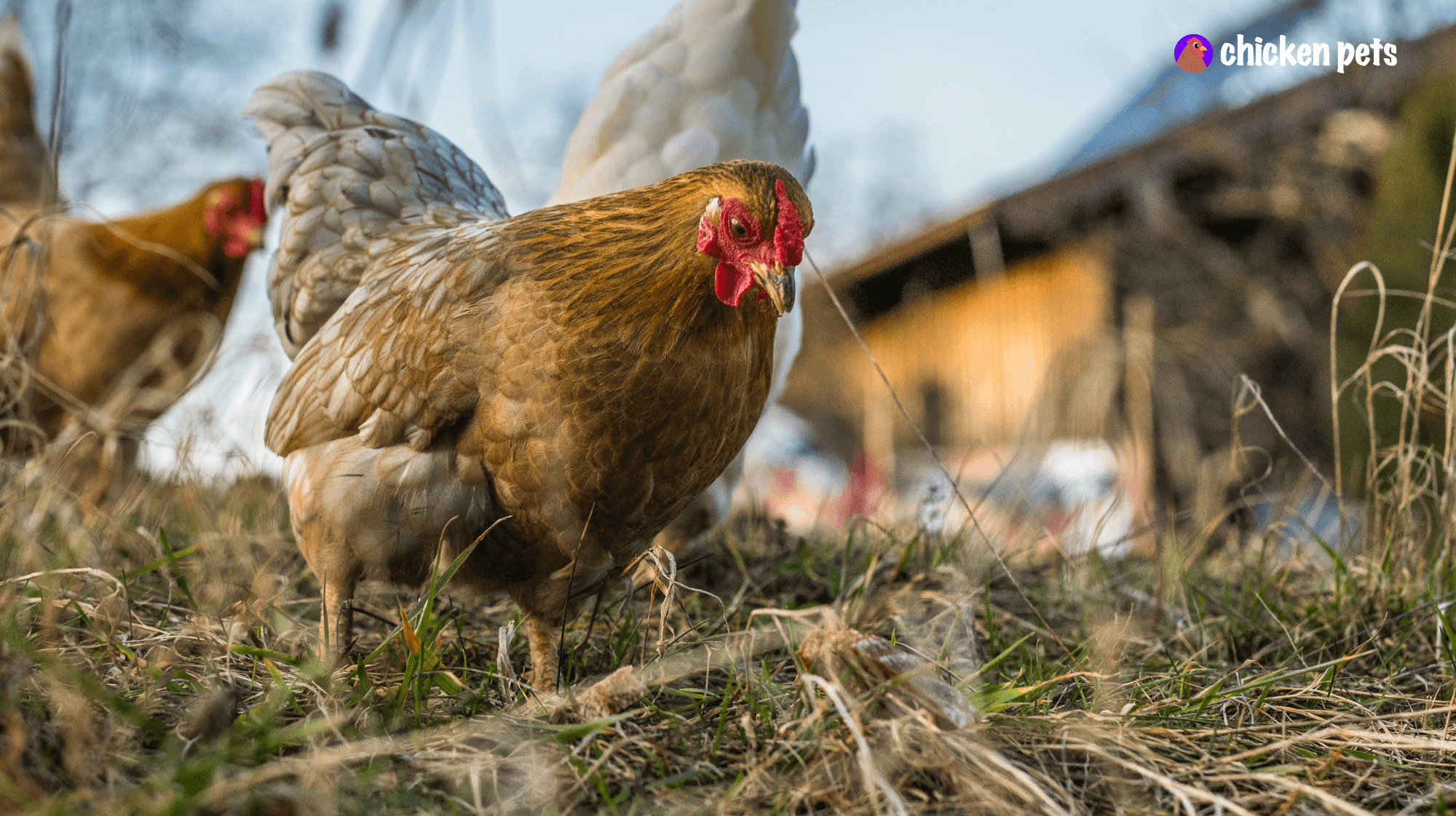
As a chicken owner, you want to ensure the health and well-being of your feathered friends. And when they’re feeling under the weather, seeking veterinary care can make all the difference. Let’s examine why it’s important, how to identify when a chicken needs help, and where to find the right vet for the job.
The Doctor is In: Why Seek Veterinary Care for Your Chickens
Why see a vet when your chicken is sick, you ask? Well, it’s simple. A vet can help diagnose what’s happening, provide appropriate treatment, and return your chicken to its happy, clucking self. Plus, prompt veterinary care can help prevent the spread of illness to other chickens, ensuring the health of your entire flock.
Signs of Trouble: When to Seek Veterinary Care
So, how do you know when your chicken needs a trip to the vet? Here are some common signs that something’s not quite right:
- Lethargy and a decreased appetite
- Breathing difficulties
- Abnormal droppings
- Changes in feather appearance or behavior
- Any signs of injury or pain
If you notice any of these symptoms, it’s best to get your chicken checked out by a vet as soon as possible.
Veterinary Search: Finding the Right Poultry Veterinarian
Now that you know when your chicken needs a vet, the next step is to find the right one. Here are some tips to help you in your search:
- Ask for referrals from other chicken owners or local poultry organizations
- Search online directories for poultry veterinarians
- Contact your local agricultural extension office for recommendations
- A Google search, such as “Chicken Veterinarian near me,” is also a great place to start.
With some research, you’ll find a vet who’s clucking great!
Home Sweet Home: Supporting Sick or Injured Chickens
While you’re waiting for your vet appointment, there are things you can do to support your sick or injured chicken. Here’s what to keep in mind:
- Provide a warm, quiet place for your chicken to rest
- Offer appropriate food and water
- Administer any prescribed medications as directed
With love and care, your chicken will return to its happy, healthy self in no time!
Goodbye, Little Cluckers: Dealing with Chicken Death
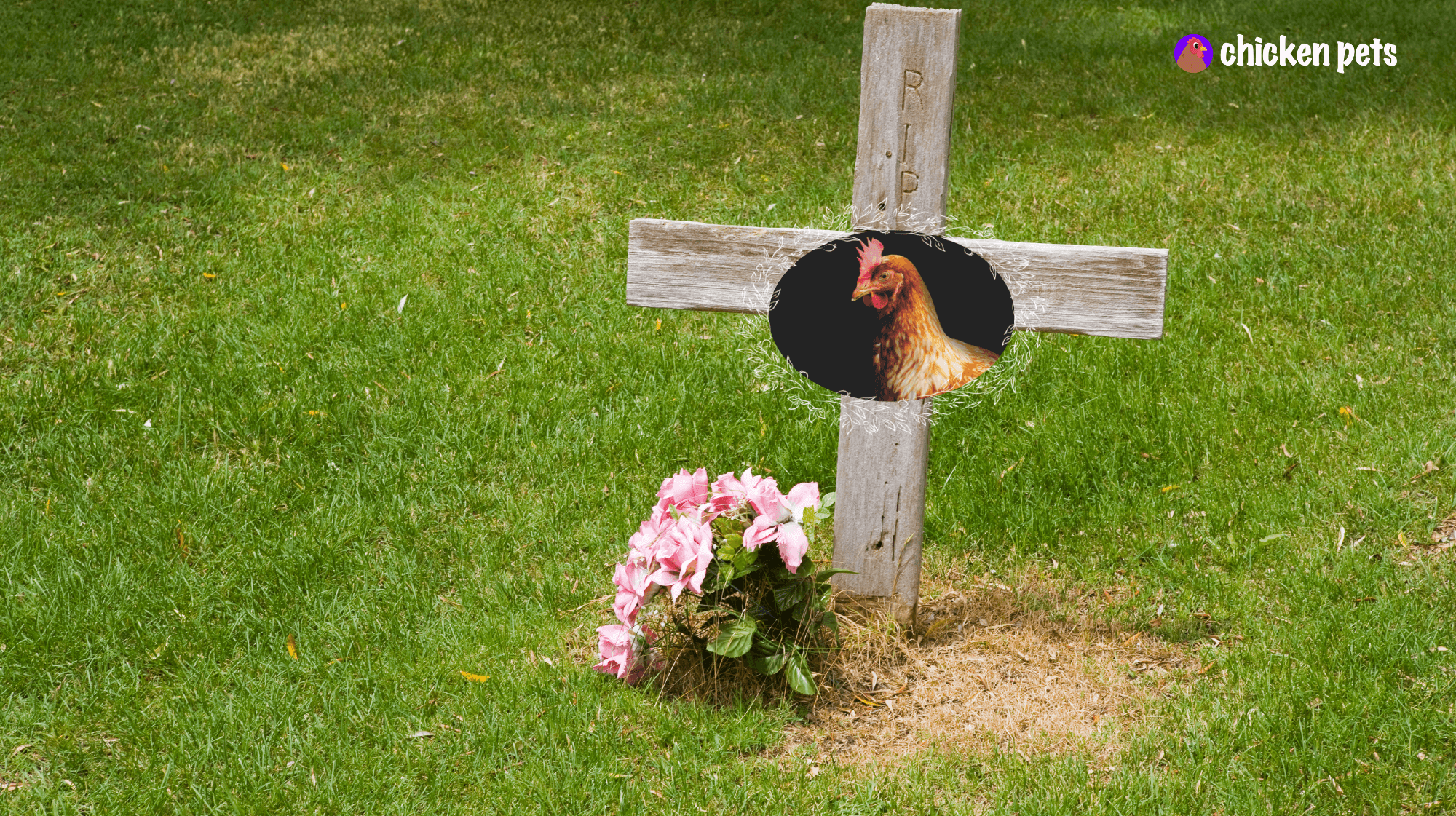
Losing a chicken is never easy and can be a painful and emotional experience. Understanding the causes of chicken death is the first step in dealing with the loss, whether it’s due to predators, illness, or old age.
Understanding the Causes of Chicken Death
A chicken may pass away for many reasons, and some deaths may come as a complete shock. Common causes of chicken death include predators, illness, and old age. No matter the reason, it’s essential to take the time to grieve and remember the positive memories you had with your feathered friend.
Proper Disposal of Dead Chickens
It’s also important to properly dispose of dead chickens to prevent the spread of disease and reduce the risk of attracting predators. You can bury the body at least 2 feet deep or wrap it in plastic and place it in a sealed container. Just make sure to follow local regulations for safe and sanitary disposal methods.
Grieving the Loss of a Chicken
Losing a chicken can be challenging, and feeling sad and emotional is normal. To help cope with the loss, you can talk to friends, focus on positive memories, and give yourself time to grieve. If you’re like our family, get out your phone and reminisce by looking through your chicken photos. Remember, being sad is okay, and there’s no right or wrong way to feel.
Prevention of Future Deaths
Finally, it’s essential to focus on the future and take steps to prevent future chicken deaths. Improving biosecurity, providing proper nutrition, and regularly monitoring the flock’s health are great ways to reduce the risk of losing more chickens. By being proactive, you can help ensure the health and well-being of your entire flock.
Dealing with chicken death can be challenging, but following these guidelines can make the process easier and help prevent future losses. Rest in peace, little cluckers.
The article is a chapter from our book. Keep reading the chapters below.

- Backyard Chickens: The Beginners Guide
- Chapter 1: Raising Chickens in Your Backyard. Pros, Cons, Costs
- Chapter 2: Chicken Coops. Components, Buying, Building
- Chapter 3: Chicken Breeds for Beginners. Where to Start
- Chapter 4: Baby Chicks. Everything You Need to Know
- Chapter 5: Feeding and Watering Chickens Ultimate Guide
- Chapter 6: Chicken Health and Hygiene: The Master Guide
- Chapter 7: Chicken Eggs. The Incredible Edible Egg!
- Chapter 8: Chicken Psychology and Behaviors
- Chapter 9: Chicken Shit. Quality, Consistency, Color, Smell

